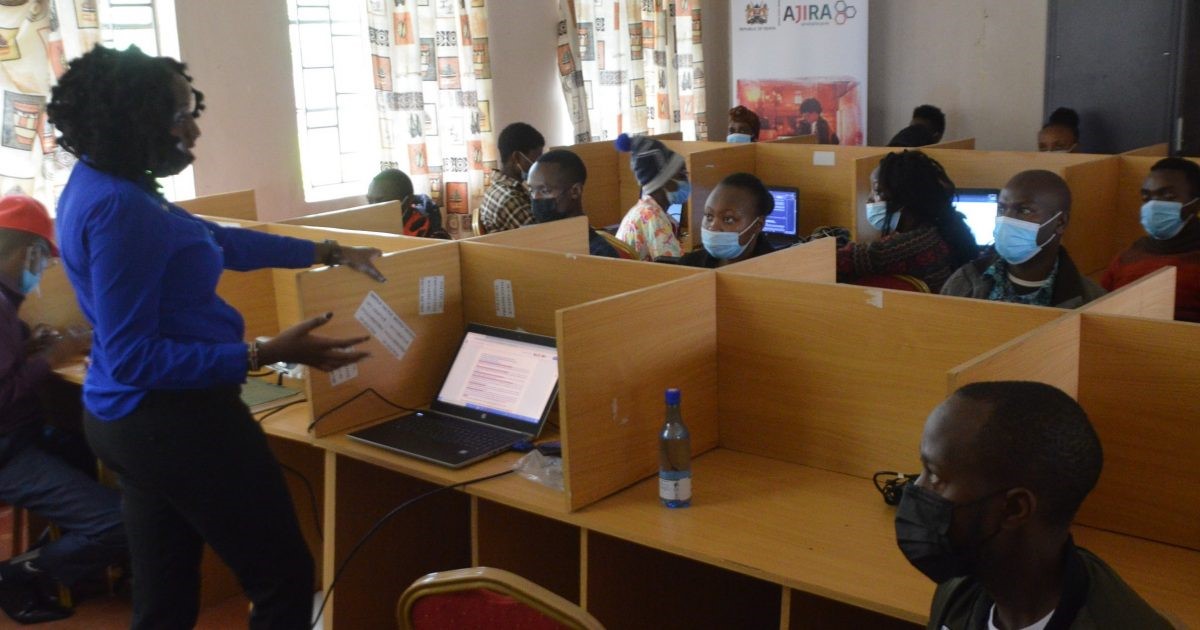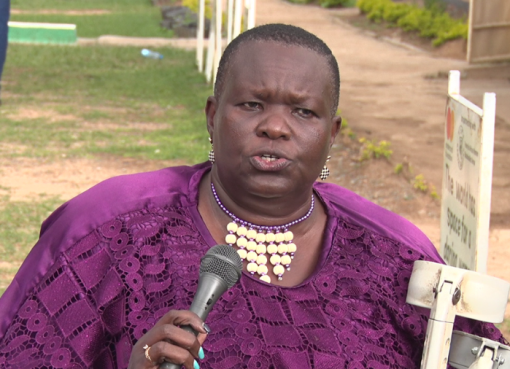The digital planetary may be a fun space, but it certainly isn’t limited to personal pastimes. Today, one cannot imagine a world without the much revered cable connection. The most influential and powerful moguls in the world such as Mark Zuckerberg sprung up from the exploitation of the web.
But just as human wants are ever evolving and unlimited, so is the need for the internet and its availability in the society. As the speed, adaption and pace of technology transformation hastens, the government recognizes the need to swiftly deliver the digital capabilities and services expected by Kenyans.
In 2013, the Jubilee Government presented a titillating sustenance to Kenyans that it would create digital hubs to empower over one million unemployed youths and offer them a gateway to numerous digital job opportunities. The project alias The Ajira initiative was to create viable micro work and also supply learning institutions with laptops edged in the Digital literacy Programme (DLP) umbrella.
The Ajira initiative which is embroiled in hiring of mentors that offer training, provide free internet connectivity and work spaces, through the various Constituency Innovation Hubs, largely funded by National Government Constituencies Development Fund (NG-CDF).
The decentralization system of governance introduced in 2010 is also believed to have allowed local economies to grow aided by advancement of technology.
In 2018, a report presented in Parliament by the Ministry of Education indicated that about 1.1 million learning devices had been distributed to schools.
The one-laptop-per-child concept under the Jubilee’s DLP was meant, ostensibly, to engrain ICT in teaching and learning in primary schools.
The report informed that the gadgets had not been supplied to 34 schools in Samburu, five in Marsabit, four in Turkana, two each in Mombasa, Meru, Nairobi, Murang’a, Nakuru and subsequently in Tharaka Nithi and one in Narok.
The total number of schools with devices installed as of March 2018 was 19,565 of the 21,731, representing a national average of 90.4 per cent of the total contract. It’s innocuous to say that Overall, a total of 983,271 tablets had been distributed in 19,565 public schools.
Similarly, 47,902 teachers’ digital devises were disseminated with a parallel number of digital content server and wireless routers. Nonetheless there were concerns raised that most of the teachers were green on matters tech and that a lot of sensitization ought to be conducted to get them ready for the task ahead.
The Education Ministry is now planning to equip schools with computer laboratories to serve Grade Four to Grade Six students.
The Presidential DigiTalent Programme (PDPT) and the Digital Literacy Programme initiated recently by President Uhuru Kenyatta through the Ministry of ICT brings a new hope to many young people that this move will not only equip and improve their livelihoods but also sequentially transform their communities.
“You have been selected in this programme because of the skills and competence you have, therefore you must be able to deliver and work with facts, as it is the only thing that can take you forward,” elucidated the Cabinet Secretary for ICT, Innovation and Youth Affairs Joe Mucheru to the youth, addressing 400 youths at the University of Nairobi, Manu Chandaria Hall who had been selected for the PDPT Cohort VI programme during the Pre-deployment verification themed ‘Reimagining Workforce Skills for a Digital Economy’ .
Access to digital work will build wealth and grow the middle class across the country. A larger middle class creates opportunities for businesses and direct growth of GDP, an ideology held stalwartly by economist.
The future of government service delivery encompasses the whole of life service delivery and an integrated wholesome approach the reason why the youth are urged to take-up and utilize online jobs, which he said had increased, due to the Corona virus.
Government Spokesman, Colonel (Rtd.) Cyrus Oguna, has since confirmed that the government has established 212 Ajira Centres across the country where the youth can engage in digital work, promising that there are plans to establish 15 million more by 2030.
Oguna further avowed that the Ajira Digital Clubs, was intended to act as formal structures within the various higher-learning institutions, to lure in new members get access to work readiness training, mentorship and visibility of job opportunities in the tech economy noting that the major challenge was creating awareness which the government is undertaking.
He called upon the youth to use the ‘tell a friend to tell a friend’ conveyer belt method so that the good news may reach large masses and promote the gospel of remote working as alternative employment through the Ajira Digital Programme.
“Access to Infrastructure such as Innovation Hubs, Kazi Connect Centers, Studio Mashinani, Y254 TV Channel has proved to be instrumental in realising a revolutionized country”, remarked an Ajira learner.
Currently 1.2 million Kenyan youth are making a living out of online jobs as freelancers even as the world struggles with social-economic challenges stifled by the epidemic.
The Internet is one of the greatest creations that provides people with instant access to an endless supply of knowledge and connection with the outside world. The government should capitalize on this phenomena and seal loop holes in order to strategize on how best to boost the ICT learning in public schools since the private institution already got the grip of it and is integrating technology in their curriculum.
The government together with Ministry of Education needs to become an anchor client and position the country as a choice of labour destination for multinationals companies as well as encourage local companies and public sector. The digitization projects already create lots of viable micro exertion that can be completed by digital workers.
Earlier on KEPSA in partnership with the Government and with the financial support from the Rockefeller Foundation started by implementing Phase 1 of the Ajira Digital Project amid April 1, 2017 and March 31, 2018.
Globally, Building trust and confidence by creating awareness through education and skills for the dynamic online opportunities has proved to be effective.
By Lydia Midani





